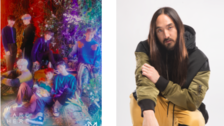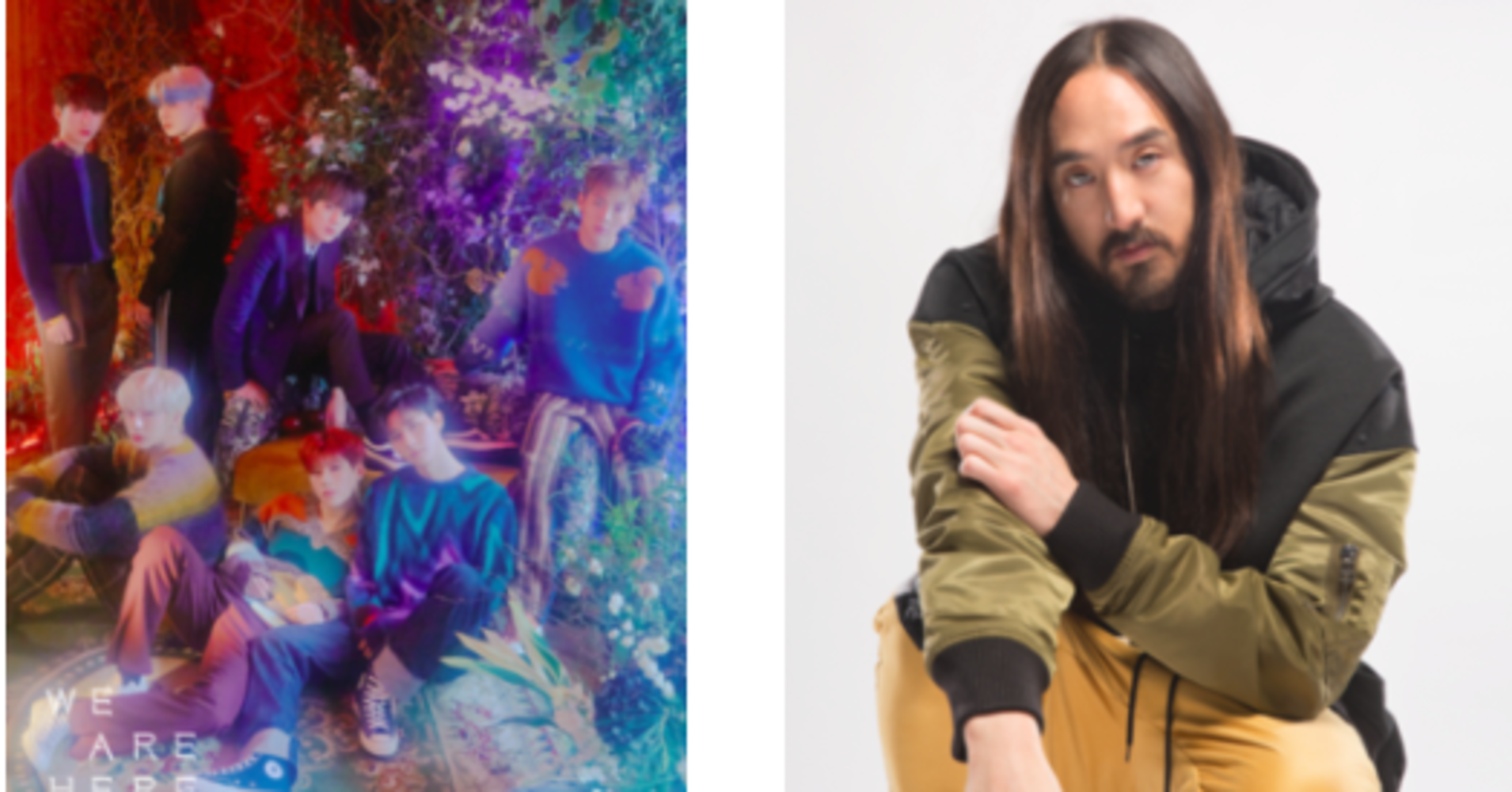[ad_1]

Steve Aoki is completely leaning into K-pop, and he hopes more listeners will too.
The famed producer and DJ dropped the English version of his collaboration with K-pop group Monsta X, “Play It Cool,” on Friday. The song marks Aoki’s fourth K-pop collaboration and he sat down with HuffPost to discuss the impact and draw of the music.
Known for exuberant, dance-y, upbeat tracks paired with oftentimes perfectly synchronized dance moves, and, in the case of male K-pop groups, frequent use of makeup and jewelry, the K-pop genre has the unique ability to redefine our notions of masculinity, Aoki believes.
”[K-pop] challenges the stereotypical Western idea of masculinity without being political about it,” he said.
Indeed, the genre’s ability to traverse cultures and hemispheres while continuing to gain momentum has been a pleasant surprise, considering how Asians, particularly Asian men, have been traditionally branded as sexless, undesirable, and effeminate in Western entertainment spaces.
BTS, a collaborator with Aoki and the biggest K-pop act to ever break into the U.S. market, was described by a Mexican talk show host as resembling “an LGBT group lost in Cancún,” adding they looked like “a group of my female friends who drive trucks.”
It’s an uphill battle for Asian men in Western society ― the structural emasculation of Asian men in the U.S. is a touchy subject that has seeds stretching back as far as the 1800s, when Chinese workers were brought to the U.S. to build the transcontinental railroad. Perhaps the androgynous look found in K-pop male bands could chip away at traditional ideas.
As the producer succinctly sums it up, “masculinity can mean many different things,” and K-pop proves “masculinity is fluid.”
“It’s something that I absolutely support.”
Aoki insists that there’s actually a wealth of complexity behind the music that many have yet to tap into. For him, the discovery of the genre led to an “underground culture.”
“When you’re able to discover it and peel back the layers, you see the characters, the personalities, and you go into their lives and they really showcase a lot of that ― their wit, their humor,” he said.
Despite the music’s booming popularity, much of K-pop still exists outside of mainstream channels. It’s not well-covered in the media, as Aoki pointed out. However, he feels the journey to discovering the genre is part of its charm.
“It hasn’t been appreciated ― but I that’s the great thing about K-pop. You have to discover it yourself. It’s not going to be out there in the media, spreading its wings for everyone to see,” he explained. “You have to find it for yourself. When you do, you find an incredible community of people who really know the culture so well and they can help guide you through what is complex and beautiful about the culture.”
In the case of Monsta X, Aoki was drawn into the band through their YouTube channel. The producer raved about their look, their choreography, their style. And they’re far from the last international act to get the Aoki treatment.
The producer said that working with international acts, spanning cultures and languages, gives him the ability to “bridge worlds together.”
“I love working with all kinds of international acts; no language or culture will ever be a barrier for me,” he said. “That’s one of my favorite things as a producer that I’m able to do is build these bridges and connect so many of these communities together.”
He concludes: “At the end of the day, music is a universal community and collaborations that I’ve done and collaborations like mine help in uniting music even further.”
[ad_2]
Source link

